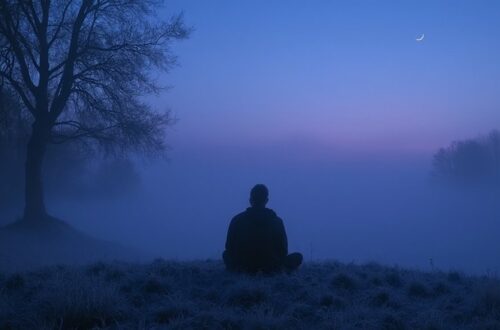The Power of Writing Before the World Wakes Up
I've discovered that writing before dawn unlocks a rare combination of biological and psychological advantages. Your prefrontal cortex experiences peak mental focus upon waking, while elevated cortisol levels enhance your alertness and cognitive function. When you write during these quiet hours, you'll find your willpower and decision-making abilities are at their strongest, creating an ideal environment for sustained creativity. By establishing a dedicated morning writing space and developing consistent habits, you can tap into this powerful intersection of mental clarity and undisturbed focus. Let me share how you can transform your creative practice through the magic of dawn writing.
The Science Behind Morning Writing

Anyone who's attempted early morning writing knows there's something special about those quiet predawn hours. I've discovered through research and personal experience that our brains are uniquely primed for creative work during this time.
When we wake up, our prefrontal cortex – the command center for complex thinking – experiences a mental focus boost that gradually diminishes as the day progresses.
I've found that writing early capitalizes on our brain's natural productivity optimization cycle. During these morning hours, our cortisol levels peak, enhancing alertness and cognitive function. Meanwhile, the absence of external stimuli allows our minds to operate without the constant interruptions that typically fragment our attention throughout the day.
Studies show that willpower and decision-making abilities are strongest in the morning, before we've exhausted our daily cognitive resources. I've noticed that this combination of heightened focus and reduced mental fatigue creates an ideal environment for sustained writing. By tapping into these biological advantages, we can produce higher quality work with less effort than we might exert during other times of the day.
Preparing Your Dawn Writing Space
Three essential elements transform an ordinary room into an ideal dawn writing sanctuary: lighting, comfort, and minimal distractions. I've found that soft, adjustable lighting works best – whether it's a desk lamp with warm LEDs or indirect lighting that won't strain your eyes in the pre-dawn darkness. Your workspace should feel welcoming before sunrise.
Creating a cozy atmosphere doesn't mean sacrificing productivity. I recommend investing in an ergonomic setup that includes a supportive chair and a desk at the proper height. Position your screen to reduce neck strain, and keep your keyboard and mouse where they won't stress your wrists. Add a few personal touches – perhaps a favorite mug for your morning coffee or a small plant – but avoid cluttering your space.
Minimize potential interruptions by choosing a quiet corner away from household traffic. Turn off phone notifications and close unnecessary browser tabs. I keep a dedicated notebook and pen nearby for quick thoughts, reducing the temptation to reach for my phone. Remember, your dawn writing space should feel like a creative cocoon where you can focus entirely on your words.
Finding Your Creative Sweet Spot

Discovering your peak creative hours takes experimentation and self-awareness. I've found that tracking my energy levels and creative output at different times helps identify when I'm most productive. For many writers, including myself, dawn inspiration strikes most powerfully in those quiet morning hours before the world stirs.
To find your sweet spot, I recommend testing different wake-up times over several weeks. Start with rising 30 minutes earlier than usual, then adjust based on your results. Pay attention to when you experience personal breakthroughs and when your words flow most naturally. Some writers hit their stride at 4 AM, while others peak at 6 AM.
Monitor your physical and mental state during these experiments. Are you foggy and struggling, or alert and inspired? Note the quality of your writing, not just the quantity. When you find that magical time when your mind is clear and creativity surges, you'll know you've found your sweet spot. Remember, this time might shift with seasons or life changes, so stay flexible and willing to adjust your schedule when needed.
Creating Morning Writing Habits
Once you've identified your optimal writing time, building consistent habits will anchor your morning practice. I recommend starting with small, achievable goals rather than attempting dramatic lifestyle changes that won't stick. Begin by setting your alarm just 30 minutes earlier and protecting that time fiercely for writing.
Your early bird rituals should be simple and repeatable. I suggest preparing your writing space the night before – having your laptop charged, coffee maker preset, and writing prompts ready eliminates morning friction. Morning page consistency develops when you remove decision-making from the equation.
To solidify your routine, track your writing sessions for at least 30 days. I use a basic spreadsheet to log my start time, word count, and any internal resistance I faced. This data helps me identify patterns and adjust accordingly.
When you hit obstacles, don't abandon ship – modify your approach instead. If you're too tired at 5 AM, try 6 AM. If your desk feels isolating, write from your favorite chair. The key is establishing a sustainable practice that works for your life.
Conquering Early Morning Resistance

Resistance looms large in those early morning hours when your warm bed beckons and doubts creep in. I've found that early morning motivation isn't about forcing yourself out of bed – it's about reframing your relationship with dawn. When you view these quiet hours as a gift rather than a burden, everything shifts.
I recommend building morning willpower strategies that make decisions automatic. Place your alarm across the room, set out your writing materials the night before, and program your coffee maker. Each small victory builds momentum. I've learned that the key is removing friction points that give resistance a foothold.
Create a reward system that speaks to your core desires. Maybe it's treating yourself to a special breakfast after writing, or earning points toward a meaningful goal. I've discovered that linking early rising to something you genuinely want makes it easier to override the brain's protests. Remember, resistance fights hardest when you're about to do something important. So when those doubts surface, recognize them as signals that you're on the right path. Your early morning writing practice matters – don't let resistance win.
Sustaining Your Dawn Writing Practice
Maintaining a dawn writing practice requires more than just initial enthusiasm – it demands sustainable habits that withstand life's inevitable disruptions. I've found that the key to longevity lies in creating a system that protects your productive solitude and nurtures your creative spirit.
Start by setting up your writing space the night before. I recommend laying out your tools, preparing your coffee maker, and choosing your writing topic in advance. This removes friction points that might derail you when you're groggy and tempted to crawl back into bed.
To protect your focused contemplation, establish clear boundaries. I suggest communicating with family members about your dawn writing commitment and using noise-canceling headphones to maintain your bubble of concentration. Track your progress in a simple way – maybe just marking an X on your calendar for each successful morning session.
When disruptions occur (and they will), don't abandon ship. Instead, adapt your practice. If you miss a morning, resume the next day without guilt. Remember, sustainability comes from consistency, not perfection.




